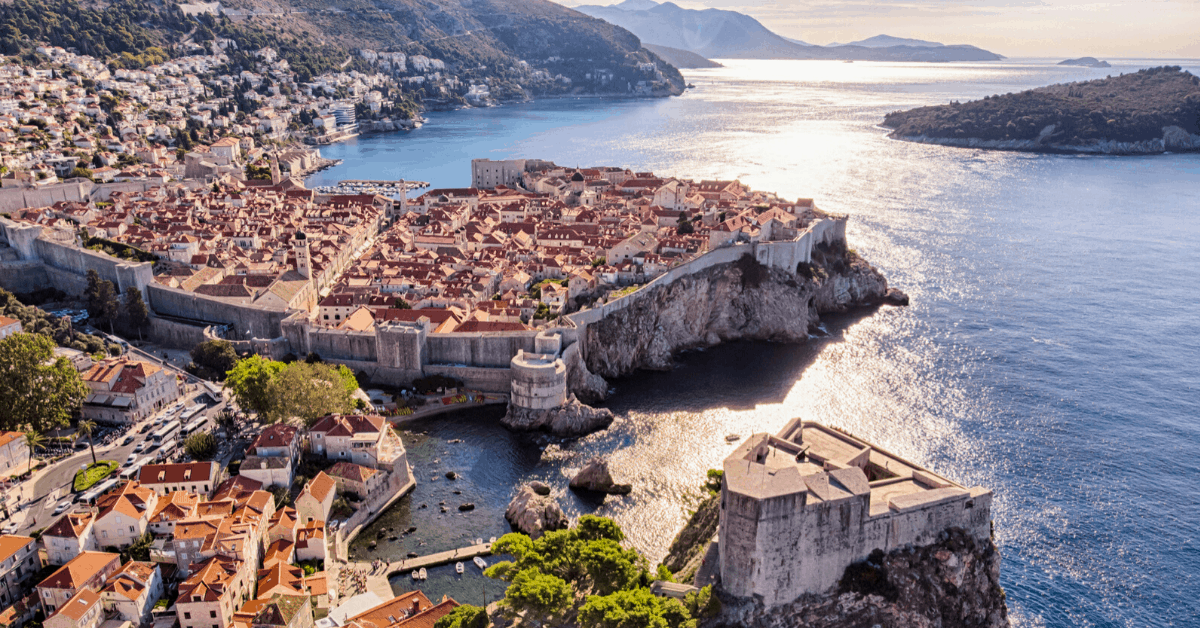For destinations popularized through film and TV, fame can be a double-edged sword.

While there are many things that can contribute to the touristic success of a destination such as excellent weather or fabulous food, another important factor can be the amount of screen time a destination has received in films or on TV.
More and more travelers are visiting locations after seeing them featured in a film or TV show, a phenomenon we saw heightened after the release of the wildly popular film “Joker”, starring Joaquin Phoenix.
Residents and tourists alike have been flocking to a formerly incongruous flight of stairs in the Bronx, where one of the film’s most memorable scenes was filmed. Visitors pose on the now-crowded staircase, some in full Joker costume, and post their images and videos under the hashtag #jokerstairs.
But fame is a double-edged sword, which was summed up perfectly in a tweet by local Bronx politician Eric Denowitz. He asked Joker fans to “be respectful to residents” while encouraging them to “check out our [the Bronx’s] shops and restaurants”.
Only time will tell whether the #jokerstairs will enjoy eternal fame, joining the ranks of other popular movie staircases, such as those featured in both “Rocky” and “The Exorcist” and whether the extra exposure will ultimately add benefit to the Bronx community. But one thing it shows for sure is how powerful just a few minutes of screentime can be.
Putting places on the map
While fame can be a mixed bag, there are many examples of how exposure in a popular film or TV series can benefit a community.
The small Washington town of Forks was written into history as the set of the “Twilight” films and books, receiving a record number of Google searches following the release of the first film in 2008 while the Mexico City neighborhood of Roma is now a trendy travel destination after the release of the 2018 indie film of the same name.
But one of the best examples might be the island nation of New Zealand after it’s epic role as Middle Earth in the “Lord of the Rings” and “The Hobbit” film trilogies. According to Google Trends, interest in the small New Zealand town of Matamata (which was used as the set for Hobbiton), rose sharply following the release of the trilogy’s dramatic final installment in 2003.
And luckily for fans of Frodo and his hobbit friends, search results for Matamata would have revealed a plethora of trilogy-related tourist activities to be had, including tours of the carefully preserved Hobbiton movie set.
And it wasn’t just Google registering the trend for New Zealand as a travel destination.
A government survey, conducted in 2004 just after the release of the third and final “Lord of the Rings” film, found that six percent of visitors had chosen New Zealand as a destination-based partly on the film trilogy – impressive, considering the remotely located nation isn’t exactly a budget tourist destination.
While this boost in international visitors has earned the nation a fair amount of extra cash, Lord of the Rings fever has benefited more than just New Zealand’s tourism industry.
In order to produce the films to a world-class standard, director Peter Jackson founded a number of film studios and production companies, sparking a thriving film industry that has continued to grow an average of 2.4 percent year on year for the last decade.
New Zealand is now regarded as one of the top players in the film industry when it comes to special effects and post-production, attracting bigwig directors such as James Cameron and Steven Spielberg. Current projects include two sequels to the popular 2009 film “Avatar”, as well as remakes of both “Mulan” and “Lady and the Tramp”, just to name a few.
Filmed in some of New Zealand’s most stunning natural spaces, the trilogies have helped to boost the nation’s “clean green” image and solidified its place as one of the most beautiful places in the world.
Both the private and public sectors have capitalized on the narrative of New Zealand as Middle Earth and the home of hobbits, including Tourism New Zealand with their 100% Middle Earth marketing campaign, and Air New Zealand with their quirky Middle Earth-themed safety videos.
But New Zealand isn’t the only destination reaping the benefits of screen exposure. The popular British TV series “Downton Abbey” has renewed interest in the British countryside as a travel destination, increasing visits to Historical British country houses, and even helping to save the castle in which it was filmed.
Highclere Castle, which is located in North Hampshire, was in a state of deep disrepair when it was first scouted for use as Downton Abbey, the fictional home of Lord Grantham and his family, back in 2009.
With 12 million pounds worth of repairs pending, the Castle owners jumped at the chance to be a part of the production, hoping the revenue would allow them to restore Highclere Castle to its former glory.
The TV series was a worldwide hit, and the castle is now fixed up and preserved for future generations to enjoy. You can visit Highclere Castle by way of tours and special events, the proceeds of which are used to continue the preservation of the estate.
The darker side of fame
While being featured on the silver screen is great for attracting cash-flashing tourists, fame can have its downsides. The Croatian city of Dubrovnik has been suffering from overtourism since being used as the set of King’s Landing in the wildly popular HBO series “Game of Thrones”.
Perched on the edge of the glittering Adriatic sea, Dubrovnik has always attracted a generous amount of tourists, but that number has risen sharply ever since the first “Game of Thrones” season aired in 2011. Last year, the city set a new record, hosting an incredible 1.27 million visitors, an eight percent increase on the previous year.
With a local population of just 42,000 and only 51 officially registered hotels, the pressure is on for the local community. Rising real estate prices means more homes and apartments are being converted into ad-hoc tourist accommodation or Airbnbs, and the streets are now thick with selfie-stick-toting Game of Thrones enthusiasts, making their way between the various castles, monuments, and palaces featured in the series.
While the government has tried to alleviate the issue by restricting visitor numbers into the old city and limiting how many cruise ships can dock in nearby harbors, it may be too little too late for local residents who feel their way of life has been smothered by Game of Thrones fever.
Overtourism is one thing, but when a destination is popularized as a result of a tragic historical event, then fame can become a moralistic minefield. Take the HBO miniseries “Chernobyl” released in May, which documents the 1986 Ukranian nuclear disaster, in which countless lives were lost.
While the site of the disaster has always been a hotspot for “dark tourism”, the release of the HBO series has inspired even more people to visit the Chernobyl evacuation zone, taking selfies in front of abandoned houses, or snapping pictures inside deserted hospitals – many of which are shared on social media.
For those who lost loved ones to the tragic event, or, are still dealing with the effects of radiation, disaster-related tourism can feel like an affront.
The Colombian city of Medellin is also struggling with the dark side of fame, following the success of the Netflix series “Narcos” detailing the life of drug kingpin Pablo Escobar.
As the birthplace and home of the infamous drug lord, Narco-tourism is big business in Medellin. Visitors can take Escobar themed city tours, visit his former home, and even buy t-shirts emblazoned with his face from the many street vendors hawking Narcos-themed souvenirs. For many locals, this is an unwelcome celebration of a tragic slice of history.
Responsible travel is key
If you’re planning to visit a place you’ve discovered by way of a blockbuster film or TV series, then chances are, you’re not alone.
No matter where we get our vacation inspiration, it’s important to travel responsibly. Before you book your flights, take time to research your dream destination thoroughly, to ensure you will be a welcome guest, and will not be contributing to overtourism. That way, you can enjoy your well-deserved break with a free and easy conscience.



